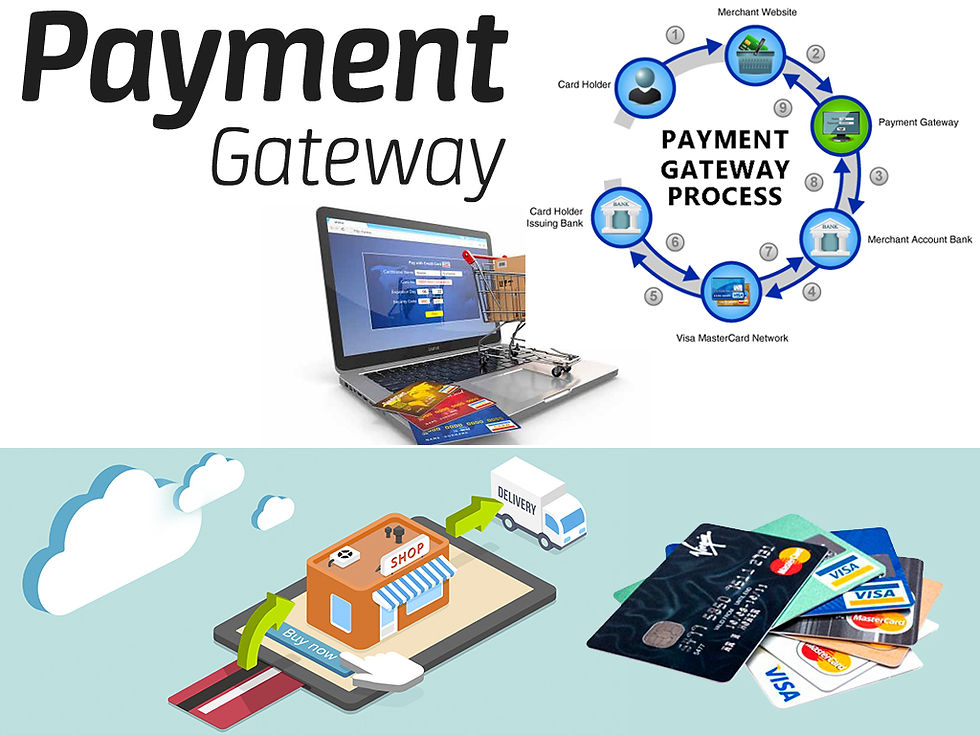
What is a merchant account?
A merchant account is a special category of bank account that allows businesses to accept payments via debit and credit cards. Merchant acquirers who process your card transactions receive payment from Visa, MasterCard, etc on your behalf and deposit these funds into this account.
Getting approved for a merchant account can be problematic for some businesses as the merchant acquirer will perform a credit risk review of your business and 5% of applications are declined due to poor financials, long deposit periods or the trading activity being considered high risk.
How do online payments work?
Now you know about the three players on the merchant’s side of online payment — e-Commerce platform, payment gateway and merchant account — it’s time to look at how the whole payment process works.
If we’re just talking about credit and debit card payments, it’s pretty easy to break a payment down.
Here are the five basic stages of an online payment:
1. Your customer browses your site and finds something they like the look of. They add the product or service to their basket and hit checkout.
2. Your customer enters their personal information, including their name, address and card numbers.
3. Your payment gateway secures that information and forwards it to the acquiring bank.
4. The acquiring bank then forwards the information to the card scheme that has branded the card and then onwards to the issuing bank. If the information matches the issuing bank’s records, the transaction is approved.
5. The success is reported back to the payment gateway, which, in turn, reports it back to your site.
And just like that, you’ve processed a payment. It's time for you to receive the funds for this transaction, the process works in reverse with cash making its way back down the line and into your merchant account.
How do I find the best e-Commerce payment system?
Finding the right payment system for your online business can be tricky. The good news is that most merchant accounts will work with most payment gateways, so all you need to do is find a payment gateway they will integrate with your e-Commerce platform and then find the most cost-effective merchant account available.
To get started, please read more about our banking partners/channels and join us today.
It only takes two minutes to get a quote and could save you up to 50 percent on your payment processing fees. So, let's get stated?
The e-Commerce sector in the UK is massive (it’s actually the third-largest online market in the world) and is still recording double-digit growth year-on-year.
The Industry is worth hundreds of billions of pounds, it’s no surprise that more and more businesses are expanding into the digital space in an attempt to tap into the ballooning market.
However, taking your business online isn’t all that simple.
Online businesses work in radically different ways to their brick and mortar equivalents and that extends to their payment systems too.
Here are a few tips on questions you must have asked yourselves:
How can customers pay online?
There are dozens of ways an online business can accept payment, ranging from the ordinary (invoicing) to the niche (cryptocurrency).
However, when you look at the e-Commerce industry as a whole a major payment option dominates the discussion: Credit Card/Debit Cards.
Here’s a quick overview of them.
Credit/Debit Cards
The vast majority of your customers will use a credit card or a debit card to pay online.
The good news is that the vast majority of online payment systems are designed to accept these payments.
With credit and debit card payments, your payment gateway will take a cut for processing the payment and your merchant account will take a cut for accepting the payment.
How do you accept online payments?
In order to accept payments online (using the two most common forms of payment), you need three things: an e-Commerce platform, a payment gateway and a merchant account.
And those three elements have to work together perfectly or else you’ll end up with one error message and one frustrated customer.
In the next few sections We will explain what each element is and what part it plays in the whole payment processing process.
What is an e-Commerce platform?
An e-Commerce platform is the piece of software behind an online business, which handles everything from the website to the shopping cart.
All e-Commerce platforms can be roughly divided into two categories: Hosted and self-hosted.
With self-hosted e-Commerce platforms, it’s the business owner who has to find hosting, install the system and maintain the platform’s software. If you aren’t technically proficient, self-hosted platforms can be a bit daunting as they require a fair bit of technical work to get up and running. However, to their credit, hosted platforms tend to give you more customization options and are a good choice for businesses operating at scale.
Hosted platforms, on the other hand, are hosted and maintained by a third-party. Businesses usually pay a subscription fee to the third-party to use the system. Hosted platforms are usually more user-friendly and are geared towards less technical users.
An e-Commerce platform alone does not allow you to run an online business. You still need a way to process payments and collect money, which is where payment gateways and merchant accounts come in.
What is a payment gateway?
While payment gateways are super complicated bits of tech, it’s not actually that difficult to explain what they do.
A payment gateway is a service that acts as a secure link between a company’s website, a customer’s card issuer and the seller’s merchant account.
It’s basically the go-between for all parties, taking the transaction info from the merchant and sending it to the issuer and merchant account. Think of it as the online equivalent of a card terminal.
For more information on how a payment gateway operates, check out the below image:

How do I find the best e-Commerce payment system?
Finding the right payment system for your online business can be tricky. The good news is that most merchant accounts will work with most payment gateways, so all you need to do is find a payment gateway they will integrate with your e-Commerce platform and then find the most cost-effective merchant account available.
To get started, please read more about our banking partners/channels and join us today.
It only takes two minutes to get a quote and could save you up to 50 percent on your payment processing fees. So, let's get stated?


Comments